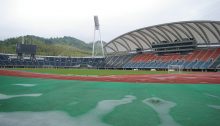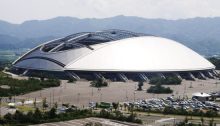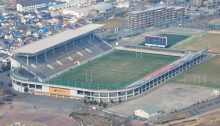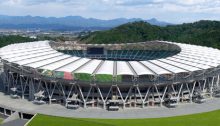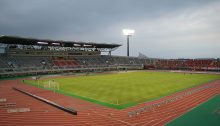Kumamoto Stadium
Kumamoto is home to some of Japan’s most exquisite scenery and national parks. In addition to natural beauty, Kumamoto has such renowned man-made attractions as the 400-year-old Kumamoto Castle, one of the largest in Japan. In the Japan rugby community, several top players have come from Kumamoto and Rugby World Cup 2019 represents a chance…
